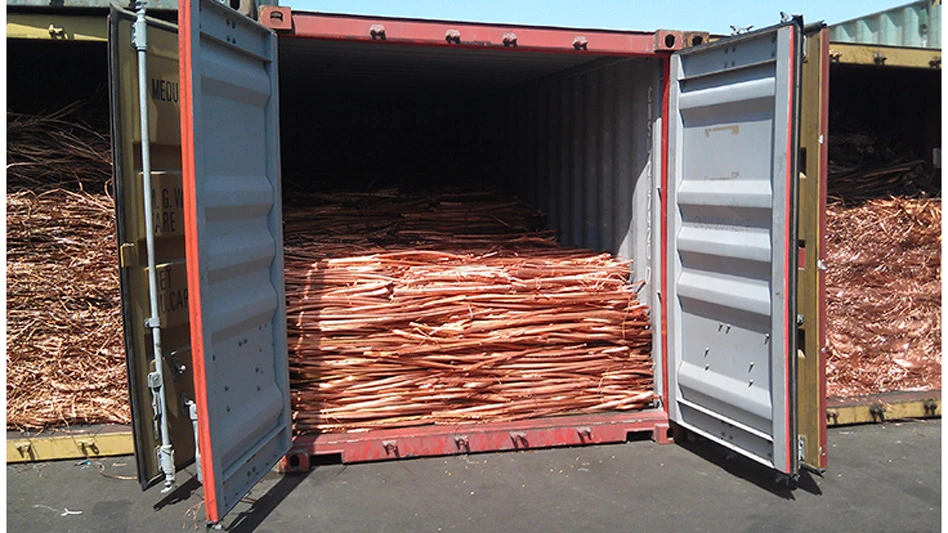
AlenKadr | stock.adobe.com
Robert Budway, president of the Can Manufacturers Institute (CMI), Washington, has responded to the Section 232 tariffs enacted on all imports of steel and aluminum by President Donald Trump’s administration March 12, releasing a statement that reads, “While we support President Donald Trump’s efforts to address unfair trade practices, tariffs on steel and aluminum will increase prices for canned foods and beverages. Consumers will feel the inflationary impact of these tariffs at the grocery store.
“Recent history has demonstrated that trade protectionist measures have serious impacts for the U.S. economy and domestic food security. Aluminum and steel tariffs place price pressures on American-produced goods by artificially and dramatically increasing the cost of critical production materials, making U.S.-made food less competitive against foreign products.
“Since the 2018 tariffs, America’s tin mill steel producers shut down nine tin mill lines. Today, only three domestic production lines remain open in the United States, meaning American steel producers cannot meet U.S. demand with the highest tinplate steel costs in the world. This opens the door for cheaper canned foods to flood the U.S. market from China and other foreign competitors.
“Ourmembers make the highest-quality metal packaging for food and beverages. We are calling on President Trump to provide targeted tariff relief, ensuring steel and aluminum cans and the products packaged in those cans continue to be ‘Made in America.’”
The CMI, along with packaging suppliers Crown, Sonoco and Trivium, as well as consumer brands that include Del Monte, Hormel, General Mills and Goya, sent a letter to the president dated Feb. 4 noting, “Tin mill steel is a niche substrate, and its production makes up less than 1 percent of total steel production. The domestic supply squeeze of tin mill steel precipitated exponential price hikes and inflated the cost of canned foods for American consumers. While it is essential for making steel food cans it is not used in infrastructure projects, construction or for national defense,” which is what Section 232 tariffs seek to project.
The letter explains that the can industry has become more dependent on foreign steel imports given the curtailment of U.S. tinplate steel production, forcing the purchase of steel from allied countries.
“Today we must import at least 70 percent of our tin mill steel needs to make the cans necessary to feed the 330 million Americans who rely daily on our products," the letter continues. "Sourcing imported tin mill steel is extremely challenging today as 232 tariffs, quotas and TRQs [tariff rate quotas] create supply and delivery impediments that may curtail manufacturing production and the idling of skilled, highly paid American workers. The hundreds of 232 exclusions granted by the Commerce Department and a recent ITC bipartisan, unanimous ruling affirm that tin mill imports do not hurt U.S. steel makers.”
The letter’s signatories request a broad exemption for tinplate steel from Section 232 tariffs and other trade restrictions the administration could pursue.
“Unless this exemption is granted, cheaper imports of canned products from Asia—especially China—and elsewhere will undercut U.S.-produced canned foods,” the letter states. “This reality is evidenced by the 1.7 billion imported food cans purchased in 2023 that in some cases are procured by U.S. government Supplemental Nutrition Assistance Program (SNAP) dollars. Most alarming is the growing dependence on canned foods from China and other low-cost Asian food canners, leaving our nation’s food security at the mercy of sometimes unstable supply chains and adversarial countries. It cannot be in the national security interest that America has become a net food importer. We need to ensure that steel food cans and the products packaged into those cans are both ‘Made in America.’”
Get curated news on YOUR industry.
Enter your email to receive our newsletters.Latest from Recycling Today
- APR, RecyClass release partnership progress report
- Clearpoint Recycling, Enviroo sign PET supply contract
- Invista expanding ISCC Plus certification program
- Redwood partnership targets recycling of medium-format batteries
- Enfinite forms Hazardous & Specialty Waste Management Council
- Combined DRS, EPR legislation introduced in Rhode Island
- Eureka Recycling starts up newly upgraded MRF
- Reconomy Close the Gap campaign highlights need for circularity







